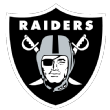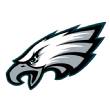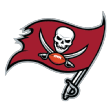The art of building a successful NFL team is a delicate science.
It requires scouting ability to project future performance of players and financial acumen to fit the best athletes who match your system under the salary cap.
Some teams, such as Oakland and Washington, regularly look for talent in the annual pool of unrestricted free agents. Others, including Green Bay and Pittsburgh, rarely splurge in free agency, relying instead on the draft and retaining homegrown players. Franchises that seek quick roster fixes, however, often become burdened by unwieldy contracts or hamstrung by dead money.
A steadily rising cap has led to hefty payouts that make it more difficult than ever to dig out from a bad deal. To wit, consider that the NFL's highest average salary in 1990 belonged to Randall Cunningham at $2.6 million. By contrast, Aaron Rodgers currently occupies the top spot with an average salary of $22 million.
With all of this in mind, we present the worst contracts in NFL history.
A few ground rules:
• Rankings were determined through votes cast by dozens of ESPN experts, the same folks who determine our weekly Power Rankings.
• This list includes contracts of both free agents and players who signed extensions with the same organizations. We considered contracts dating back to 1993, when unrestricted free agency began.
• The financial terms listed indicate the actual payouts ultimately incurred by franchises -- not the wild figures often announced when players and teams agree to terms. The source of these payout figures is ESPN's roster management system database.
• No rookie contracts were considered. JaMarcus Russell was a bad draft pick, not a bad contract. He was paid the going rate for the No. 1 overall selection at that time.
• Contracts signed in 2015 were not considered, based on the short sample size of performance available. That might come as a relief to the Browns, who are reportedly paying Dwayne Bowe -- who ranks ninth on the team with three receptions -- $9 million this season.
• This list isn't an indictment of the players who appear on it. All they did was accept the money that was put in front of them. Instead, blame the teams for these misdeeds. In a few cases, injuries were involved -- but in terms of payout versus results, those deals must be considered.
Without further ado, here's the list:
Click here for the worst contracts in NFL history, Nos. 25-11
10. Javon Walker, Oakland, 2008
 Initial reports: Six years, $55 million with $16 million guaranteed
Initial reports: Six years, $55 million with $16 million guaranteed
Actual payout by Oakland: $14 million for two seasons
Walker came to the Raiders in March 2008 as a boom-or-bust signing one week after being released by Denver. In the four preceding seasons, he put up big numbers twice but also missed significant playing time because of knee injuries. He was rated as the fifth-best wide receiver in free agency that year by ESPN.com.
Three months after signing with Oakland, Walker was badly beaten and robbed of $100,000 in jewelry, cash and credit cards after a night of partying in Las Vegas. He suffered a concussion in the attack and was hospitalized, leading him to consider retirement before ever playing for the Raiders. Raiders coach Lane Kiffin also criticized Walker for lack of conditioning during offseason activities.
Against that backdrop, Walker made his Raiders debut. He played in eight games during the 2008 season, catching 15 passes for 196 yards and one touchdown before being placed on injured reserve with an ankle injury. He suited up for Oakland in three games the following season, recording just one statistic: a fumble.
9. Larry Brown, Oakland, 1996
 Initial reports: Five years, $12.5 million with $3.5 million guaranteed.
Initial reports: Five years, $12.5 million with $3.5 million guaranteed.
Actual payout by Oakland: $6 million for two seasons.
Brown might have the most impeccable timing in NFL history. He enjoyed the best season of his career in a contract year, recording six interceptions and two touchdowns for the Cowboys in 1995 while Deion Sanders locked down the other side of the field. Then Brown picked off two passes in Super Bowl XXX to win MVP honors as Dallas beat Pittsburgh.
Headed into free agency, Brown's stock couldn't have been higher, even though he was poised to be a nickel corner behind Sanders and a healthy Kevin Smith if he returned to Dallas. Raiders owner Al Davis impetuously pounced, believing Brown could thrive as a press corner in Oakland.
The deal went awry almost immediately. Brown missed much of the 1996 season with a foot injury and was suspended four games in 1997 for conduct detrimental to the team. In total, he played in 12 games for the Raiders, starting just once, and recorded 24 tackles and one interception.
Although Brown expected to return to Oakland for the 1998 season, rookie head coach Jon Gruden had other ideas. By the time minicamp rolled around, Brown's locker was empty and No. 4 overall draft choice Charles Woodson was wearing Brown's No. 24 jersey.
8. Jeff George, Washington, 2000
 Initial reports: Four years, $18.3 million with $2 million signing bonus.
Initial reports: Four years, $18.3 million with $2 million signing bonus.
Actual payout by Washington: $6.3 million for two seasons.
Washington purportedly signed the abrasive George in April 2000 to back up Brad Johnson, who was coming off a Pro Bowl season in which he led the team to its first playoff berth since 1992. Future Hall of Famers Bruce Smith and Deion Sanders also signed with Washington that offseason. A hefty contract was bestowed on running back Stephen Davis, and linebacker LaVar Arrington and offensive tackle Chris Samuels were drafted Nos. 2 and 3 overall, respectively.
Daniel Snyder, the 35-year-old entrepreneur who had purchased the team one year earlier, already was in hot pursuit of a championship. The team creatively structured nearly $100 million in salaries, a staggering total at the time, under a $62 million cap, making it a trendy Super Bowl pick in the eyes of many observers.
Johnson, the incumbent starter, was favored by head coach Norv Turner, but Snyder was smitten with George and his big arm. George had led Minnesota to an 8-2 record as a starter with a 94.2 passer rating in 1999 but was dogged by a reputation for relying far more on natural ability than hard work. Johnson led Washington to a 6-3 start in 2000, including five consecutive wins at one point, before suffering a knee injury. George went 1-2 in the following three games.
Everything changed in a sloppy Week 14 loss to the Giants. Johnson played poorly and was replaced by George, who nearly led a fourth-quarter comeback. Turner was fired the next day. George was installed as starter, a move that Johnson told reporters must have come directly from Snyder. Terry Robiskie, the interim head coach, suffered two lopsided defeats with George under center before restoring Johnson as starter in a season-ending win over the Cardinals.
After that 8-8 whirlwind, Snyder hired Marty Schottenheimer as head coach. George became the unquestioned starter for 2001, and Johnson moved on to Tampa Bay in free agency. George played horribly and was released after leading Washington to an 0-2 start in which the team was outscored 67-3. He was 1-6 overall as a starter in Washington.
Just one season later, Schottenheimer was coaching the Chargers, Johnson was quarterbacking the Buccaneers to a Super Bowl victory, and George was out of football. Inexplicably, George resurfaced five years later with the Raiders but remained on the roster for just five days. He finished his NFL career with a 46-78 record as a starter with five teams, having clashed with coaches and teammates regularly along the way.
7. Nnamdi Asomugha, Philadelphia, 2011
 Initial reports: Five years, $60 million with $25 million guaranteed.
Initial reports: Five years, $60 million with $25 million guaranteed.
Actual payout by Philadelphia: $25 million for two seasons.
The Eagles reeled in one of the top cornerbacks in the league when Asomugha chose them over at least five other teams who were undaunted by his high asking price.
Asomugha, coming off three consecutive Pro Bowl seasons with Oakland, was part of a group of acquisitions that included Dominique Rodgers-Cromartie, Jason Babin, Ronnie Brown and Vince Young. Philadelphia already boasted standouts Michael Vick, LeSean McCoy, DeSean Jackson, Jeremy Maclin, Jason Peters and Asante Samuel. The sum of these parts led Young to infamously dub the 2011 Eagles as a "dream team," but Philadelphia went 8-8 and missed the playoffs.
Asomugha was 30 years old heading into his first season in Philly, and his skills began to erode. He made four interceptions and 82 tackles during his two years with the club, but the Eagles allowed 60 touchdown passes during that span. Because of the contract, Asomugha was closely scrutinized. Even the fact that Asomugha apparently ate lunch in his car at practices, rather than with his teammates, became news.
The Eagles released Asomugha in March 2013 after he declined to restructure his contract. He played briefly for the 49ers the following season and retired as a Raider in December 2013.
6. Jay Cutler, Chicago, 2014
 Initial reports: Seven years, $126.7 million with $54 million guaranteed.
Initial reports: Seven years, $126.7 million with $54 million guaranteed.
Actual payout by Chicago: $38 million for two seasons (includes entire 2015 salary) -- current contract.
Cutler has often been compared to the No. 8 player on this list, Jeff George.
Both are Indiana natives with cannon arms who have been criticized for failing to coexist with coaches and teammates. Both produced flashes of brilliance, only to fail spectacularly at times. George was a polarizing figure and a lightning rod for controversy. Cutler is currently both of those things. The difference is that Cutler has been surrounded by more talent over the course of his career, which has allowed him to remain above .500 as a starter.
The Bears' win at San Diego on Monday night could be viewed as a microcosm of the Cutler era in Chicago. He threw two touchdown passes and completed 68 percent of his passes. He also threw a pick-six and benefited from a circus catch by Zach Miller on one of the touchdowns. In the end, many observers still don't know what to make of him a decade into his career. He hasn't played well enough to make the Bears a consistent contender, but he hasn't played poorly enough to be replaced.
So you get a quarterback with statistics slightly above average who draws one of the NFL's highest salaries. In the world of general managers, that places you squarely in purgatory.
The Bears went 8-8 in 2013, and Josh McCown played noticeably better than Cutler in five games as an injury replacement. Nevertheless, Chicago signed Cutler to this massive deal days after the season ended. What followed was a 5-11 record in 2014 and the subsequent firing of general manager Phil Emery and head coach Marc Trestman.
Since the extension kicked in, Cutler has completed 65 percent of his passes for 5,599 yards with 38 touchdowns and 23 interceptions. To be sure, those are respectable numbers. Nevertheless, Chicago is 8-14 in the 22 games he has started during that span.
So does Cutler deserve credit or blame from Bears fans?
It depends on whom you ask, but consider this:
Cutler had a 27-13 starting record from 2010 to '12. His record is only 13-20 since then, but his individual stats have actually improved. The Bears' biggest problem is that their defense hasn't been good enough to cover for their up-and-down quarterback. Chicago is allowing an NFL-worst 28.5 points per game in Cutler's past 33 starts. The Bears' defense ranked fourth in the league at 18.8 points allowed per game when Cutler was posting that 27-13 record despite lesser individual stats.
5. Matt Flynn, Seattle, 2012
 Initial reports: Three years, $26 million with $10 million guaranteed.
Initial reports: Three years, $26 million with $10 million guaranteed.
Actual payout by Seattle: $8 million for one season.
It wasn't that long ago that the Seahawks lured Flynn, previously the Packers' backup quarterback, and were prepared to seek their fortunes with either him or Tarvaris Jackson under center. For the sake of comparison, consider that three days after Flynn signed, NFC West rival San Francisco re-signed quarterback Alex Smith to a three-year pact reportedly worth $24 million with $16.5 million guaranteed. Unlike Flynn, Smith was coming off a 13-3 season and a trip to the NFC Championship Game.
Flynn had shown flashes of potential in Green Bay, including a 480-yard effort against Detroit in the 2011 season finale. He also guided LSU to a BCS national championship in the 2007 season. Optimism was blooming in the Seattle facility after the signing.
Just got off the phone with Matt Flynn. And he's ready to WIN!!
— Doug Baldwin Jr (@DougBaldwinJr) March 18, 2012It turned out there was reason for optimism -- rookie Russell Wilson, who snatched away the starting job. Here's what the Seahawks got from Flynn in one season before trading him to Oakland for a fifth-round draft pick: zero starts, 5-of-9 passing for 68 yards and zero touchdowns. Flynn was beaten out by Terrelle Pryor for the Raiders' starting job in 2013 and was cut after Week 5. He landed briefly with Buffalo before rejoining the Packers to carry the clipboard for Aaron Rodgers. Flynn signed with the Saints earlier this week.
4. Michael Vick, Atlanta, 2005
 Initial reports: 10 years, $130 million with $37 million guaranteed.
Initial reports: 10 years, $130 million with $37 million guaranteed.
Actual payout by Atlanta: $39 million for two seasons.
A day after being named to his second Pro Bowl in three seasons, Vick signed a contract extension in December 2004 that was supposed to make the elusive quarterback "a Falcon for life," in the words of owner Arthur Blank.
The extension kicked in for the 2005 season and initially provided Atlanta with salary-cap relief, but the team ultimately received pedestrian performance in return. Under the first two seasons of the pact, Vick posted a 74.4 passer rating, completing just 53.9 percent of his passes for 4,886 yards with 35 touchdowns and 26 interceptions. He did help his cause by rushing for 1,636 yards and eight touchdowns during that span, and his 1,039 rushing yards in 2006 are a single-season NFL record by a quarterback.
Bottom line: The Falcons went 15-16 with Vick taking the snaps those two seasons. He was paid nearly $40 million at a time when the salary cap was much smaller than today -- $85 million in 2005 and $102 million in 2006.
Everything changed when Vick became embroiled in a dogfighting scandal in 2007. He was suspended and later served 23 months in federal prison. The Falcons tried to recoup $20 million in bonuses from Vick, and an arbitrator initially agreed with the team. A federal appeals court later overturned the ruling, however, and Vick was able to keep all but $3.75 million of the sum. Atlanta released Vick in June 2009 and incurred a $7 million cap hit the ensuing season.
3. Michael Johnson, Tampa Bay, 2014
 Initial reports: Five years, $43.8 million with $24 million guaranteed.
Initial reports: Five years, $43.8 million with $24 million guaranteed.
Actual payout by Tampa Bay: $16 million for one season.
The Buccaneers brought in Johnson based on his impressive physique and skill set, but his performance in five years with Cincinnati hadn't risen to the level of Pro Bowl honors. He enjoyed a breakout season in 2012 with 11½ sacks, but he regressed to 3½ sacks in 2013. ESPN's Bill Polian rated Johnson as the sixth-best defensive end among 2014 unrestricted free agents.
Johnson earned more than $1 million per game while battling injuries last year, recording four sacks in a Buccaneers season regrettably punctuated by the numbers 2 and 14. Johnson made just 20 tackles in 14 games as Tampa Bay skidded to a 2-14 record in 2014.
The Bucs released Johnson in March, clearing $2 million in cap space and admitting an expensive mistake. He returned to the Bengals this season, and Cincinnati has gone from having one of the worst pass-rushing units in the NFL last season to ranking fifth in the league with 23 sacks so far in 2015.
2. Percy Harvin, Seattle, 2013
 Initial reports: Six years, $67 million with $25 million guaranteed.
Initial reports: Six years, $67 million with $25 million guaranteed.
Actual payout by Seattle: $19 million for two seasons.
Coming off a playoff appearance with rookie quarterback Russell Wilson, the Seahawks invested heavily in the playmaking Harvin in March 2013. Seattle traded three draft picks -- a first-rounder, a third-rounder and a seventh-rounder -- to Minnesota to acquire the enigmatic Harvin, then bestowed a hefty contract on him.
Harvin was deemed expendable by the Vikings after physical confrontations with coaches and questions about his work ethic, issues that reportedly extended to his college days at Florida. Those same issues made Harvin's stay in Seattle a brief one.
After sitting out most of 2013 with a hip injury, he made four postseason receptions and scored a memorable touchdown in the Super Bowl on an 87-yard kickoff return. But he totaled just 23 receptions, 242 yards from scrimmage and one rushing touchdown in six regular-season games for Seattle. The Seahawks traded Harvin and his contract to the Jets in October 2014, ultimately receiving a sixth-round pick in return. He signed with the Bills for this season but was placed on injured reserve Saturday with hip and knee problems.
Harvin's decline has been precipitous. He scored 29 touchdowns in four seasons with the Vikings, followed by just three touchdowns in the ensuing three seasons.
Fortunately for the Seahawks, the failure of the Harvin and Flynn contracts pales in comparison to the team's draft successes with players such as Wilson, Richard Sherman, Earl Thomas, Kam Chancellor and Bobby Wagner. Seattle made it to consecutive Super Bowls, including its victorious romp over Denver in XLVIII.
1. Albert Haynesworth, Washington, 2009
 Initial reports: Seven years, $100 million with $41 million guaranteed.
Initial reports: Seven years, $100 million with $41 million guaranteed.
Actual payout by Washington: $38 million for two seasons.
Here lies the queen of all loathsome contracts. It's a pact so awful that both sides regret having entered into the agreement. Haynesworth recently wrote in an article for The Players' Tribune website that he should have turned down the offer and stayed with the Titans. Likewise, the man who signed Haynesworth, former Washington executive Vinny Cerrato, ultimately called the mammoth defensive tackle "a huge distraction."
Washington went all-in with Haynesworth, a two-time Pro Bowler, despite previous issues with injuries, work ethic and ability to keep his composure. His 2006 stomping of Cowboys center Andre Gurode drew a five-game suspension. Despite the red flags, Haynesworth was considered by many to be the NFL's top free agent that year, and he predicted greatness at his introductory news conference.
"You're not going to remember Albert Haynesworth as a bust," he said. "With the contract, it's going to be all on me. ... My goal is to be the best player on the field and to eventually get to that Hall of Fame status and be mentioned with Reggie White and Bruce Smith and all the greats."
Haynesworth recorded four sacks and 29 tackles in 2009, working in a 4-3 scheme like the one he left in Tennessee. But head coach Jim Zorn was replaced by Mike Shanahan in January 2010, and Washington switched to a 3-4 defense that was ill-suited to Haynesworth's skill set. He soon clashed with Shanahan and skipped the team's offseason workouts and minicamps. Although Haynesworth reported to training camp noticeably slimmer, he made national headlines by repeatedly failing a standard conditioning test. "Most people can do this test in their sleep," Shanahan said at the time. "It's not as big as it may sound."
Not surprisingly, Haynesworth's production spiraled downward. He lost his starting job and appeared in only eight games in 2010. He totaled just 2½ sacks and 13 tackles. Haynesworth performed marginally better by returning to the 4-3 in brief stints at Tampa Bay and New England in 2011, but his final professional stop is unlikely to be in Canton, Ohio.
Bad blood was still simmering in 2013, when Haynesworth called Shanahan selfish and conniving, and Shanahan responded by saying Haynesworth was lazy and lacked passion and character.
All of the above led our expert panel to overwhelmingly vote this pact as the worst contract in NFL history.
Also receiving votes
• Shaun Alexander, RB, Seattle, 2006: Alexander got paid handsomely after rushing for 1,880 yards and 27 touchdowns during his MVP season in 2005. The ensuing contract began when Alexander was 29, and he earned $18.5 million to appear in 23 games. He rushed for 1,612 yards and 11 touchdowns, averaging just 3.5 yards per carry.
• Jared Allen, DE, Chicago, 2014: The Bears ultimately will pay Allen $14.7 million for 18 games of work, 41 tackles and 5½ sacks. Chicago traded him to Carolina after three games this season but will incur $11.5 million of his 2015 salary, compared with just $823,000 for the Panthers.
• Adam Archuleta, S, Washington, 2006: Archuleta collected $6 million for one season with Washington, making seven starts. He recorded one sack, 49 tackles and zero interceptions. Washington avoided paying him a $5 million bonus by trading him to the Bears for a sixth-round pick in March 2007.
• Drew Bennett, WR, St. Louis, 2007: The Rams wound up paying the former Titans wideout $13 million for what amounted to one season of work. He suffered a broken leg on the opening drive of Week 1 in 2008 and missed the rest of the season. Bennett totaled 34 receptions, 379 yards and three touchdowns with the Rams.
• Ahman Green, RB, Houston, 2007: The former Packers star was paid $11.4 million for two seasons with the Texans. He appeared in 14 games, starting six, and recorded 554 rushing yards and five touchdowns.
• Desmond Howard, KR/PR, Oakland, 1997: One year after opening the vault for Larry Brown, the Raiders also signed the subsequent Super Bowl MVP. Howard earned $3 million for two seasons in Oakland, scoring two touchdowns on punt returns and making six receptions.
• Joe Johnson, DE, Green Bay, 2002: Johnson represents a rare contractual gaffe by the Packers. He received $8.1 million for 11 games in which he recorded two sacks and 12 tackles. He was limited to five games in 2002 because of a triceps injury and played in only six games in 2003 because of a ruptured quadriceps tendon.
• Aaron Kampman, DE, Jacksonville, 2010: Once a top pass-rusher with the Packers, Kampman signed with the Jaguars after missing the final seven games of 2009 with a torn left ACL. With the Jags, he was limited by injuries -- including a torn right ACL -- to 11 games in two seasons. He earned $13.5 million, recording four sacks and 16 tackles.
• Brandon Lloyd, WR, Washington, 2006: Lloyd received more than $11 million for two seasons in Washington. He played in 23 games, including 13 starts, and made 25 receptions for 379 yards with zero touchdowns.
• Nate Odomes, CB, Seattle, 1994: Odomes was named to two Pro Bowl teams with the Bills before signing with Seattle. He was paid $4.8 million by the Seahawks but never played in a regular-season game for the team. He missed the 1994 season after suffering a knee injury in a charity basketball game and hurt the same knee in training camp the next year and missed the entire 1995 season.
